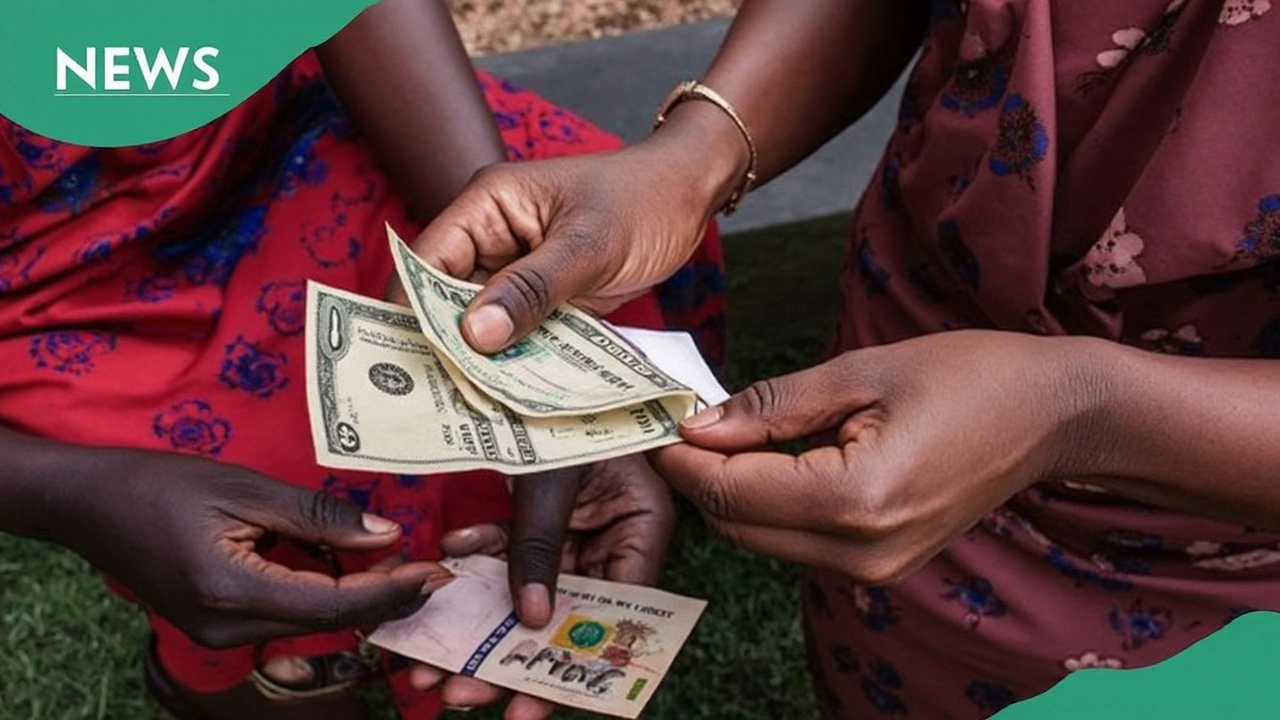- Deadpool & Wolverine: A Cinematic Goldmine with Explosive On-Screen Chemistry Jul 27, 2024
- Pastor Paseka 'Mboro' Motsoeneng's Bail Hearing: A Pivotal Moment in His Legal Battle Sep 13, 2024
- UEFA EURO 2024 Quarter-Final Showdown: Portugal vs France Rematch Jul 5, 2024
- Liverpool in Pursuit of Juventus Star Federico Chiesa: Latest Transfer Update Aug 27, 2024
- Raila Odinga backs Ruto govt, sparks doubts over 2027 presidential run Oct 7, 2025
Black Market: What it means and how it affects Africa
Ever wondered how goods and services move outside official channels? The black market covers any trade that skips regulation: fake certificates, smuggled phones, medicine sold without checks, or leaked exam papers. It’s not just criminal groups making profit — ordinary people and institutions feel the harm every day.
On African EduNews Tree we track how black market activity touches schools, hospitals, businesses and households. This tag page gathers practical info, recent stories, and clear steps you can take if you spot illegal trading near you.
How the black market affects schools, students and learning
Education fraud is a big problem. Fake degrees, bought test answers and leaked exam papers destroy trust. When certificates can be bought or exams are compromised, job markets and university admissions suffer. Students who try to shortcut risk bans and ruined careers. Teachers and administrators lose credibility, and honest learners get left behind.
Textbooks and learning materials also show up on the black market. Stolen or pirated books may seem cheap but often lack updates or crucial content. That harms classroom learning and deepens inequality: those who can’t afford official materials get worse resources.
Common forms of black market trade and real risks
Here are common examples you may see in African communities: counterfeit medicines sold at roadside stalls, illicit foreign currency dealers, illegal SIM cards and phone imports, smuggled fuel, stolen school materials, and fake academic certificates traded online. Each carries real danger — fake medicine can be deadly, counterfeit parts can cause accidents, and fake degrees undermine public services.
The black market also hurts the economy. Lost tax revenue reduces funding for schools and clinics. Legitimate businesses face unfair competition and may close or lay off staff. That feeds a cycle where more people turn to informal or illegal work to survive.
How to spot, avoid and report black market activity
Spotting illegal trade takes a bit of common sense. Watch for deals that seem too good to be true, sellers who won’t provide documentation, or items with poor packaging and no serial numbers. For education fraud, check certificates with issuing institutions and look up official exam portals before you trust a result.
If you suspect illegal activity, report it. Contact local authorities, school boards, or national regulators. Many countries have hotlines or online portals for reporting counterfeit goods and fraud. Keep records: photos, receipts, and the seller’s contact details help investigators. When possible, warn friends and local groups so others don’t get caught out.
Want to stay informed? Follow this tag for updates on recent cases, government actions, and practical tips for keeping your family and community safe. Small steps — checking a certificate or refusing suspicious medicine — protect people and help cut off illegal markets for good.
Naira Plummets Past N1,500: Official and Black Market Rates Signal Growing Exchange Rate Tension
- Katlego Sean Mahaye
- Jun 4, 2025
The naira’s official rate has jumped to ₦1,581.58 per dollar, with black market rates soaring past ₦1,615. The widening gulf between official and parallel markets reflects deepening foreign exchange struggles for Nigeria, driven by liquidity shortages, speculative trading, and economic uncertainty.
